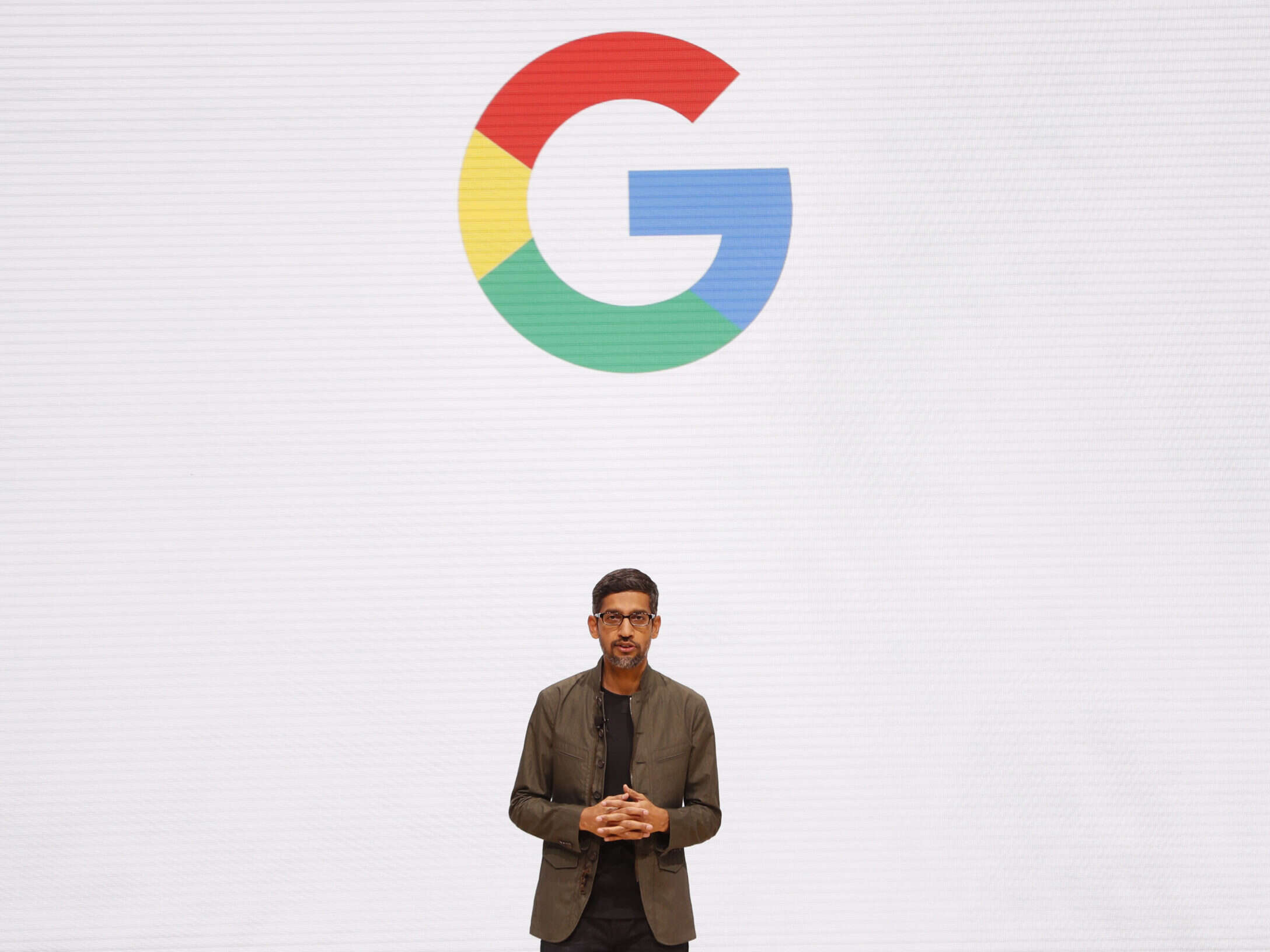
Google will pay $1bn to news publishers around the world over the next three years and let them make more editorial decisions about how their content appears on its products.
But a collective of European publishers said the move made it clear Google is “feeling the pressure of legislation and government action designed to bring them to the negotiating table”.
The Google News Showcase will create story panels that participating publishers can package however they want with features like timelines, bullet points and related articles and, later on, video, audio and daily briefings.
It builds on the news licensing programme announced earlier this year, for which Google said it would pay for free access for users to read articles from paywalled publications to help them grow their audiences.
The tech giant said it has almost 200 national and regional publishers already on board for the product, which launched in Germany and Brazil today with German news magazine Der Spiegel and weekly newspaper Die Zeit the most prominent titles announced so far.
The initial partnerships are also being made in the UK, Australia, Argentina and Canada, where it will roll out in the next few months, although the publishers involved have not yet been revealed.
The next countries after that are expected to be India, Belgium and the Netherlands with plans to eventually take it global, meaning countries like the US will have to wait and see how it goes elsewhere first.
The story panels will appear initially within Google News on Android, then Apple and later on Google Discover and Search.
Google chief executive Sundar Pichai (pictured) said the News Showcase was “distinct from our other news products because it leans on the editorial choices individual publishers make about which stories to show readers and how to present them”.
He added that it would “give readers more context and perspective on important stories in the news and drive high-value traffic to a publisher’s site” and that it was aimed at helping the overall sustainability of news publishers around the world.
“Alongside other companies, governments and civic societies, we want to play our part by helping journalism in the 21st century not just survive, but thrive,” he said.
Press Gazette understands that although the $1bn is earmarked for the next three years, the plan is to invest more and continue the project long-term.
In January, Google owner Alphabet became the third US tech company to be worth $1tn. The company brought in $38.3bn in revenue in the second quarter of 2020 alone.
Publisher responses
News Corp chief executive Robert Thomson said in response: “We applaud Google’s recognition of a premium for premium journalism and the understanding that the editorial eco-system has been dysfunctional, verging on dystopian.
“There are complex negotiations ahead but the principle and the precedent are now established.”
Der Spiegel’s head of product development Stefan Ottlitz told the FT the News Showcase showed Google was “serious about supporting quality journalism in Germany”.
However the European Publishers Council said many of its members are “quite cynical” about Google’s strategy.
Its executive director Angela Mills Wade said: “By launching their own product, [Google] can dictate terms and conditions, undermine legislation designed to create conditions for a fair negotiation, while claiming they are helping to fund news production.”
She added: “It is not yet clear how ‘News Showcase’ will work for all publishers and there are questions how it can work in tandem with publishers’ strategies to implement the EU press publisher’s right.
“It is important that publishers have the freedom to enforce their rights directly, or participate in collective agreements negotiated under European Union law.”
The publishers’ right was passed into EU law and is currently being negotiated by member states; Google is currently battling measures brought in France in the courts.
According to the EPC, the French Competition Authority ordered Google to conduct negotiations in good faith with publishers over remuneration for their content. But the tech giant argued the regulator failed to show its refusal to pay posed a serious and immediate threat to the press sector, which it said was struggling for many reasons.
A Press Gazette poll earlier this week showed support from 71% of our readers for Government intervention to force Google and Facebook to pay for news.
Picture: Reuters
Email pged@pressgazette.co.uk to point out mistakes, provide story tips or send in a letter for publication on our "Letters Page" blog
